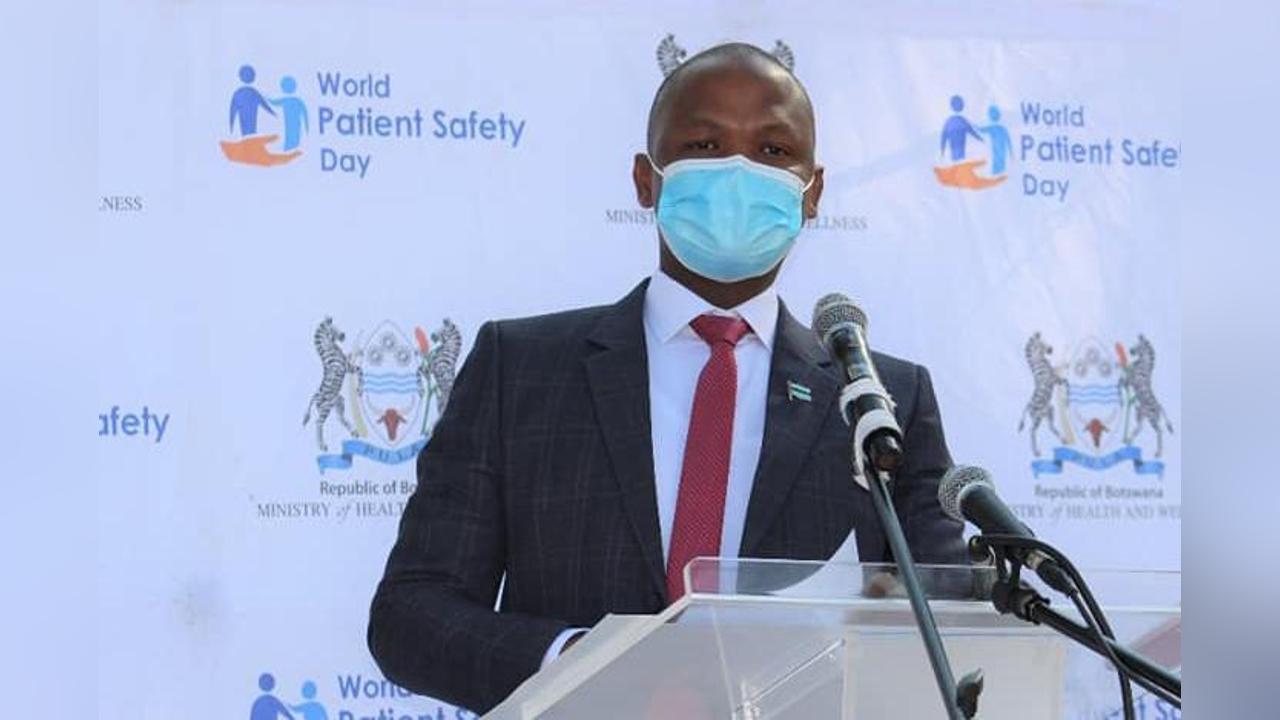Africa-Press – Botswana. Countries must strive to create healthcare systems that are fair, inclusive, and responsive to the needs of all people, regardless of their social or economic status, says Minister of Health, Dr Edwin Dikoloti.
In a statement delivered at the Geneva Graduate Institute on the sidelines of the ongoing 77 World Health Assembly in Geneva, Switzerland on Wednesday Dr Dikoloti underscored the importance of addressing the rising burden of Non-Communicable Diseases (NCDs) and achieving Universal Health Coverage, with focus on equity.
While pointing out that health was a human right, Dr Dikoloti said there was no doubt that the rising burden of NCDs threatened collective efforts to achieve the aspirations of Agenda 2063, of a prosperous and peaceful Africa.
He said in most parts of Africa, NCDs like cardiovascular diseases, cancers, diabetes, and respiratory illnesses were on an unprecedented rise, saying this posed significant threat to the health and well-being of populations.
“These diseases not only cause immense suffering to individuals and families, but also place a heavy burden on our healthcare systems and economies. NCDs account for over 70 per cent of deaths globally. Worse still, about 86 per cent of NCD-related premature deaths occur in low and middle-income countries,” he said.
Dr Dikoloti said in Botswana the multi-sectoral coordination of response to NCD’s had been elevated to the Office of the President for continued political will, resource mobilisation and multi-stakeholder participation.
He disclosed that government had developed a multi-sectoral NCD strategy with the aim to promote, support and strengthen engagement and collaborative partnerships at all levels for prevention and control.
Dr Dikoloti urged different countries to continue facilitating social mobilisation, engaging and empowering a broad range of actors to promote dialogue, catalyse societal change and shape a systematic society-wide national response to address NCDs.
He said Botswana had managed to develop its own investment case and was using this to advocate for increased and prioritisation of budgetary allocations.
He stated that this was also a tool for soliciting funding from other streams and for engaging the private sector to forge meaningful partnerships that would improve access to services.
Dr Dikoloti said equitable NCD service delivery and approaches should be evidence-based from a country specific context, adding that there was need to strengthen research agendas and capacity for high quality research and development for prevention and control of NCDs.
He called on African governments to systematically support national research capacity building, funding and coordination to inform policy and action against NCDs.
The Ministry’s Permanent Secretary, Prof Oatlhokwa Nkomazana told the same forum that both cervical and breast cancers were the leading cause of death for most females in Botswana.
Prof Nkomazana said cervical, followed by breast cancer continued to claim the lives of many women and girls, more than any other cancer.
She said this was a big problem for Botswana and as a result government was taking steps to reverse the situation through initiatives such as education about preventative measures and the importance of regular screening and early diagnosis.
To demonstrate government’s resolve to have the situation reversed, Prof Nkomazana said First Lady, Ms Neo Masisi was leading the National Cervical Cancer Prevention Campaign as its ambassador.
For More News And Analysis About Botswana Follow Africa-Press






